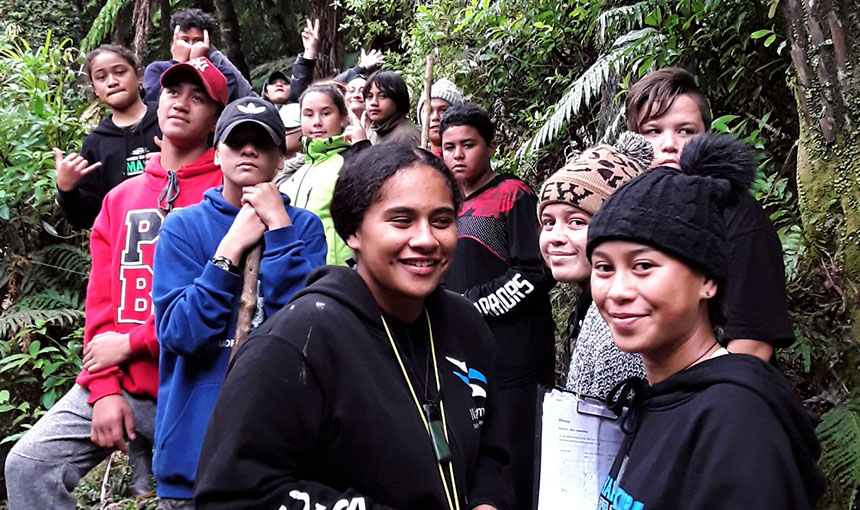Teaching youth about native plants and animals
North Island rangatahi (youth) will test a new app that aims to connect them with the environment by teaching them about plants and animals.

In late 2018, researchers held a series of wānanga (educational forums) in Te Kuiti and Huntly to gather information that’s providing a framework for the bi-lingual app. The Unlocking Curious Minds project, known as Tohu o te wā – Hangarau pūtaiao (Signs of our time – fusing technology and science) is being driven by Manaaki Whenua – Landcare Research, with support from the BioHeritage Challenge.
Researchers Kiri Reihana and Yvonne Taura are leading the project that essentially aims to inspire rangatahi to get out into the environment.
“Today’s rangatahi are living through computers and mobile phones so we’re going to use these platforms to teach them about our native plants and animals – as well as the pests,” Kiri says.
Originally, they envisaged creating a monitoring tool but switched direction when they realised the students needed education on basic ecology and biology.
“We realised that a lot of the rangatahi were not aware of the names of native plants and trees. It was similar when it came to pests – for example many of them didn’t realise that wasps are a pest in Aotearoa.
“Our goal now is to create a tool that will teach them these things. Also, to help them realise that often work on these things is science – many of them didn’t see us as scientists.”
A prototype app will be developed before the end of 2018 and it will then be tested with rangatahi from Te Whare Kura o Maniapoto (Te Kuiti) and Te Whare Kura O Rakaumaunga (Huntly) – where the wānanga were held.
Ultimately the app is expected to be available nationally, contributing to BioHeritage’s goal of tracking progress through national monitoring and reporting frameworks.